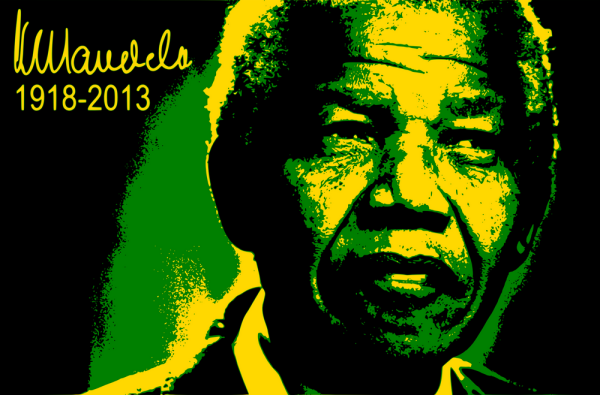Amy Goodam interviews Ryan Shapiro
In a Democracy Now! exclusive, one of the nation’s most prolific transparency activists, Ryan Shapiro, reveals he is suing the NSA, FBI and Defense Intelligence Agency in an attempt to force them to open their records on one of the country’s greatest secrets: how the U.S. helped apartheid South Africa capture Nelson Mandela in 1962, leading to his 27 years in prison. The U.S. has never confirmed its involvement, but details have leaked out over the years. Shapiro already has a pending suit against the CIA over its role in Mandela’s capture and to find out why it took until 2008 for the former South African president to be removed from the U.S. terrorist watch list. The NSA has already rejected one of Shapiro’s requests for its information on Mandela, citing “national defense.”
Transcript
This is a rush transcript. Copy may not be in its final form.
AMY GOODMAN: We turn now to a Democracy Now! exclusive involving the National Security Agency and Nelson Mandela. Today, one of the leading transparency activists in the United States has turned his attention to one of this country’s greatest secrets. Ryan Shapiro has just filed a lawsuit this morning against the NSA, the FBI and the Defense Intelligence Agency in an attempt to force the agencies to release documents about the U.S. role in the 1962 capture and imprisonment of Nelson Mandela, the late South African president and anti-apartheid leader.
The United States has never confirmed its involvement, but details have leaked out over the years. In 1990, the Cox News Service quoted a former U.S. official saying, within hours after Mandela’s arrest, a senior CIA operative named Paul Eckel admitted the agency’s involvement. Eckel was reported as having told the official, quote, “We have turned Mandela over to the South African security branch. We gave them every detail, what he would be wearing, the time of day, just where he would be. They have picked him up. It is one of our greatest coups,” unquote. Several news outlets have reported the actual source of the tip that led to the arrest of Mandela was a CIA official named Donald Rickard. Mandela was held for 27 years after he was captured.
Ryan Shapiro already has a pending suit against the CIA over its role in Mandela’s capture and to find out why it took until 2008 for Mandela to be removed from the U.S. terrorist watch list. So far, no government agency has opened its secret records on Mandela. The NSA has already rejected one of Shapiro’s requests for its information on Mandela, citing, quote, “national security.”
Over the past decade, Ryan Shapiro has become a leading freedom of information activist, unearthing tens of thousands of once-secret documents. His work focuses on how the government infiltrates and monitors political movements, in particular those for animal and environmental rights. Today, he has around 700 Freedom of Information Act requests before the FBI, seeking around 350,000 documents. That tenacity has led the Justice Department to call him the “most prolific” requester there is—in one year, two per day. It has also led the FBI to dub his academic dissertation a threat to national security.
Ryan Shapiro, welcome to Democracy Now!
RYAN SHAPIRO: Thank you so much for having me. It’s a real honor.
AMY GOODMAN: So, let’s start with Nelson Mandela.
RYAN SHAPIRO: All right.
AMY GOODMAN: Talk about why you have applied for this information.
RYAN SHAPIRO: Sure. So, I’m pursuing these records mostly because I’m interested in knowing why the U.S. intelligence community viewed Mandela as a threat to American security and what role the U.S. intelligence community played in thwarting Mandela’s struggle for racial justice and democracy in South Africa. As you said, I’m especially interested in records pertaining to the U.S. intelligence community’s role in Mandela’s 1962 arrest and Mandela’s placement on the U.S. terror watch list until 2008, which was years after he had won not only the Nobel Peace Prize, but the U.S. Congressional Gold Medal and U.S. Presidential Medal of Freedom.
AMY GOODMAN: Not to mention, he was the president of South Africa.
RYAN SHAPIRO: Yes, yes.
AMY GOODMAN: So all through that period, he was considered a terrorist by the United States.
RYAN SHAPIRO: Yes, he was.
See full transcript and participation of Journalist Andrew Cockburn here










